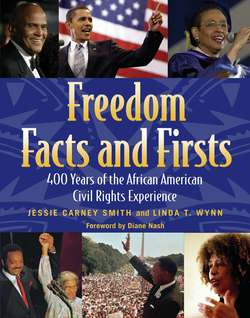Читать книгу Freedom Facts and Firsts - Jessie Carney Smith - Страница 39
На сайте Литреса книга снята с продажи.
Brown, Sterling Allen (1901–1989)
ОглавлениеAs a civil rights activist Sterling Allen Brown took “the pen is mightier than the sword” approach to fight for racial equality. Brown worked with the likes of such Harlem Renaissance notables as W.E.B. Du Bois, James Weldon Johnson, Langston Hughes, and Walter White in the NAACP and served on its advisory board. As a journalist, he reported on social and racial issues of the day in such publications as Crisis, Opportunity, and Phylon. He addressed, among other topics, the effects of World War II following the Great Depression, the unethical restrictions of Jim Crow, the inferiority of black schools, and the political and social activities of the black church. Characteristic of Brown’s writing as a journalist was his personal commentary. He often appealed to the conscience of white America relative to the quest to promote democracy: “If America is to indoctrinate the rest of the world with democracy, it is logical to expect that the American Negro will share it at home…. [S]egregation must be abolished before there will be true democracy at home.” Brown is numbered among the “race men” of his day, and was a participant in the New Negro Movement–black intellectuals who were motivated by race consciousness and pride to advocate and demonstrate the superiority of black achievement. As national editor of Negro Affairs (1936–1940) for the Federal Writers Project, Brown brilliantly showcased the achievements and contributions of black people in America.
Gwendolyn Brooks (AP Photo).
Helen R. Houston
